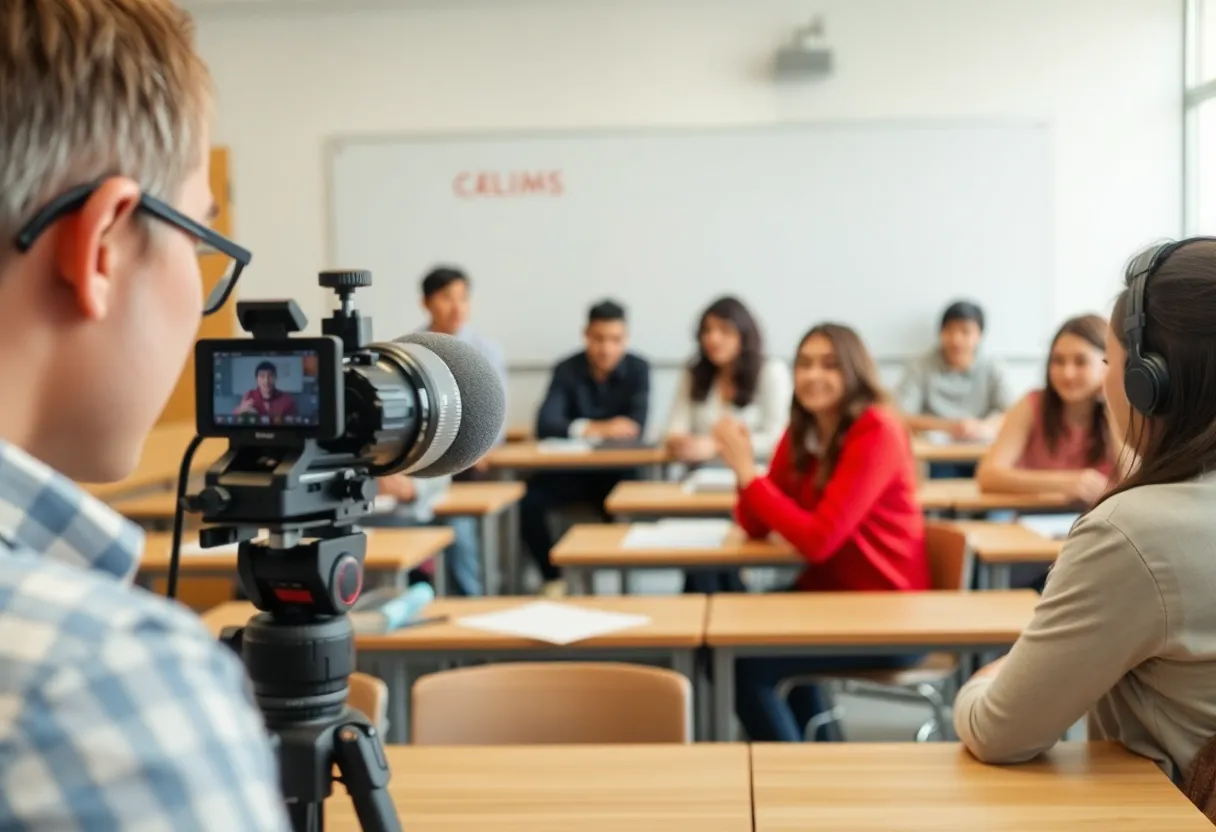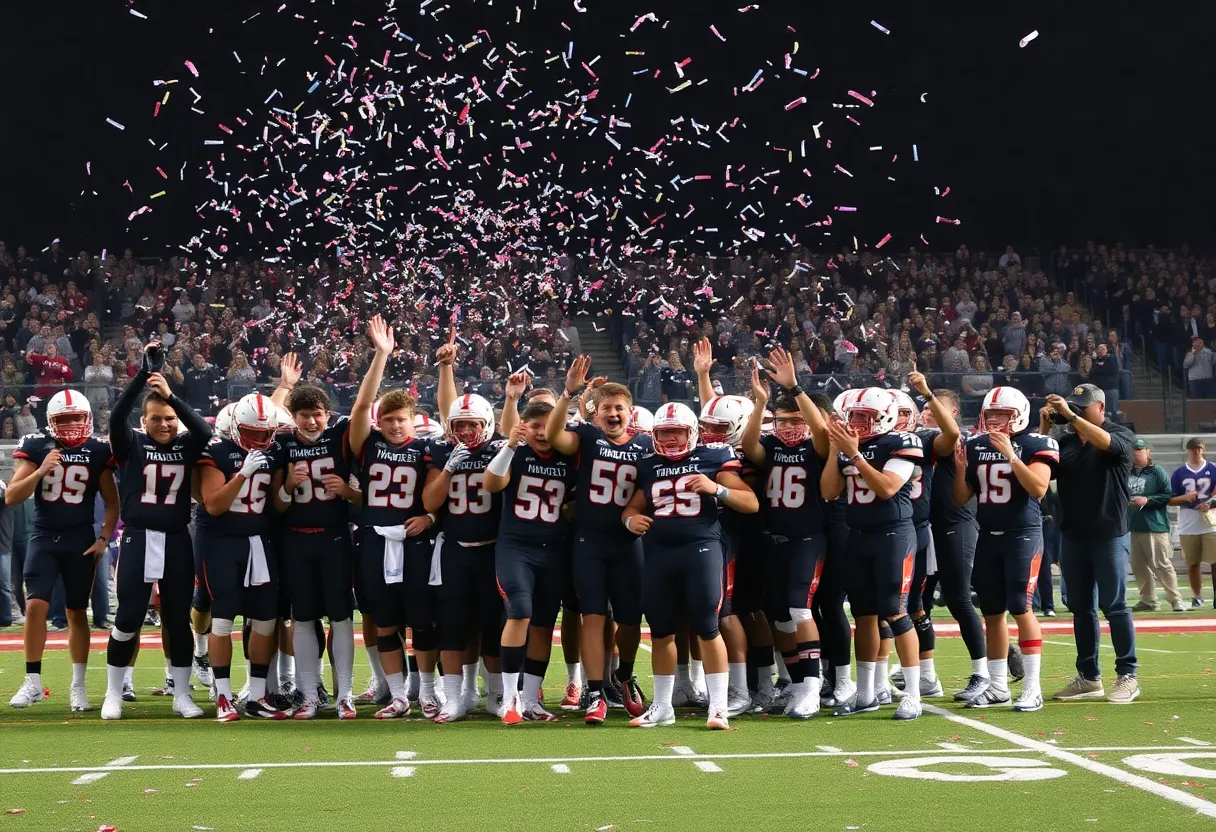News Summary
Educators in Columbia, South Carolina, express outrage over House Bill 3216, which mandates daily recording of all K-12 classroom activities. Concerns center around teacher autonomy, privacy issues, and the bill’s financial implications, including significant costs for recording equipment. Teachers worry about public access to the recordings and potential privacy violations, leading to fears about unwanted attention. As the bill progresses through the legislature, engagement from educators and parents remains crucial in addressing these contentious issues.
South Carolina Teachers Speak Out on New House Bill 3216
In the bustling city of Columbia, South Carolina, educators are in an uproar over a newly introduced piece of legislation known as House Bill 3216. This controversial bill mandates that all K-12 classroom instruction, including lectures, guest talks, and class discussions, be recorded daily. Whether teaching in-person or online, teachers are now required to hit the record button, sparking a wave of concerns among those in the profession.
What Exactly Does the Bill Mandate?
The bill’s main sponsor, a Republican representative from Greenville County, has expressed that the legislation is an essential measure to monitor compliance with state regulations. This includes a focus on preventing the teaching of topics that some parents might not approve of, such as so-called “woke agendas” and sexually explicit material. With restrictions already in place on phone usage within the classroom, lawmakers argue that it’s vital to find alternative ways to ensure that educators stick to approved curricula.
Teachers Share Their Concerns
Teachers across the state have shared a chorus of worry regarding how this bill could affect their teaching environments. One anonymous educator from Rock Hill stated that requiring daily recordings undermines their professionalism. The concern here isn’t just about the act of recording; it’s about what this means for teacher autonomy and the trust between educators and their students.
Financial Implications of the Bill
Beyond teacher apprehensions, the potential costs related to implementing such a requirement leaves a lot to be desired. With over 1,100 schools in South Carolina, the financial burden of installing recording equipment can be significant. The president of the South Carolina Education Association has voiced alarm over the idea of funneling money into classroom cameras when many schools are still struggling to provide basic necessities like adequate heating and cooling.
Public Access and Safety Concerns
In a twist that raises eyebrows, the recordings under this bill will be classified as public documents accessible under the Freedom of Information Act for five whole years. While individual schools will be tasked with ensuring that student and teacher identities remain confidential, experts are quick to point out the risks involved. The fear is that exposing identities in these recordings might attract unwanted attention from individuals with ill intentions.
Where the Bill Stands
As this bill moves through the legislative process, it has currently been referred to the Committee on Education and Public Works. However, don’t expect it to zip through; it is predicted to stall until April as the House focuses on pressing matters like the state budget.
Educators Rally for Awareness
With uncertainty surrounding the bill’s future, teachers are working to raise awareness among parents about its implications. They are eager to highlight ongoing issues in educational management and the treatment of teachers, wanting to keep communities informed and engaged. The skepticism among some legislative representatives about the bill’s viability is palpable, with many wondering if it can even make it past the House.
Conclusion
House Bill 3216 represents a pivotal moment for South Carolina teachers. As disputes about privacy, professionalism, and funding continue to illuminate the conversation, educators hope their voices will be heard. The future is still uncertain, but one thing is clear—there’s a lot at stake when it comes to balancing accountability and trust in the classroom.
Deeper Dive: News & Info About This Topic
HERE Resources
Additional Resources
- WCCB Charlotte: South Carolina Teachers React to House Bill 3216
- WCNC: Rock Hill SC Transgender School Bathroom Law
- The State: South Carolina Education News
- WSOC TV: SC Governor Signs Bill for Paid Parental Leave for Educators
- Los Angeles Blade: SC Governor to Sign Bill Banning HRT for Trans Youth
Author: STAFF HERE ROCK HILL
The ROCK HILL STAFF WRITER represents the experienced team at HERERockHill.com, your go-to source for actionable local news and information in Rock Hill, York County, and beyond. Specializing in "news you can use," we cover essential topics like product reviews for personal and business needs, local business directories, politics, real estate trends, neighborhood insights, and state news affecting the area—with deep expertise drawn from years of dedicated reporting and strong community input, including local press releases and business updates. We deliver top reporting on high-value events such as the Come-See-Me Festival, Rock Hill Arts Festival, and motorsport events at the Rock Hill Velodrome. Our coverage extends to key organizations like the Rock Hill Chamber of Commerce and the Culture & Heritage Museums, plus leading businesses in manufacturing and technology that power the local economy such as 3D Systems and Comporium. As part of the broader HERE network, including HEREAiken.com, HEREBeaufort.com, HEREChapin.com, HERECharleston.com, HEREClinton.com, HEREColumbia.com, HEREGeorgetown.com, HEREGreenwood.com, HEREGreenville.com, HEREHiltonHead.com, HEREIrmo.com, HEREMyrtleBeach.com, HERENewberry.com, HERERockHill.com, and HERESpartanburg.com, we provide comprehensive, credible insights into South Carolina's dynamic landscape.





